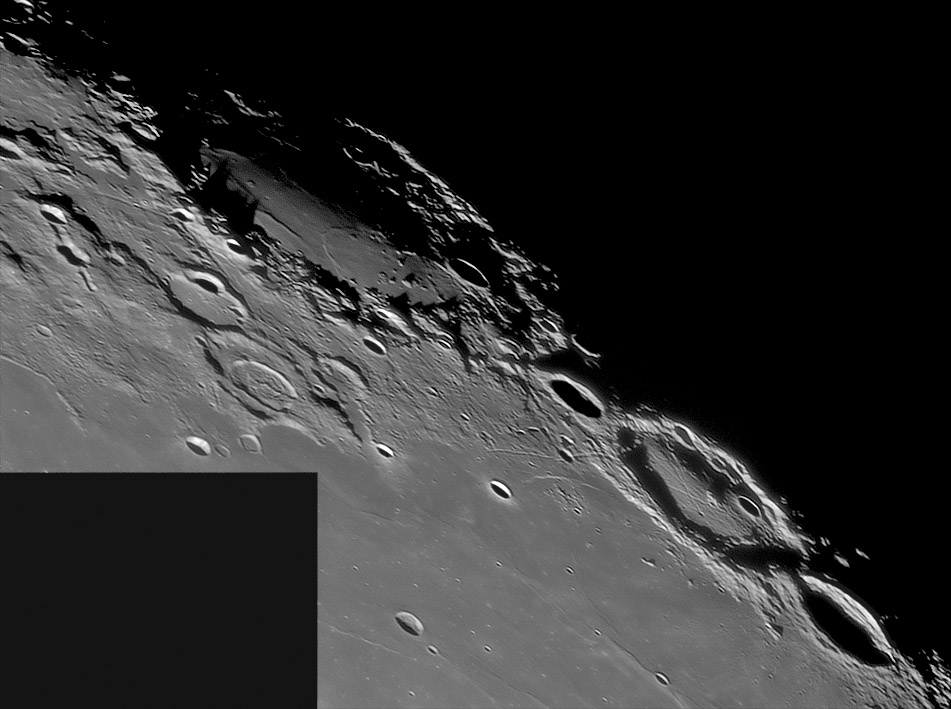
image by Bob Pilz
Grimaldi and Hevelius were two of the earliest makers of lunar maps and their names are permanently linked by their adjacent craters along the western shore of Oceanus Procellarum. Bob’s dramatic image reveals many details of their topographies and histories. The mare within the larger feature Grimaldi must not be deeper in its center than at the edges for the terminator passes through it as a straight line. For a depressed floor the shadow would extend towards the east. Hevelius’s floor may be domed - at least the southern part which casts a shadow to the west. The pitted plain in front of where Grimaldi and Hevelius nearly meet is the older lava fill that fills a moat that circles the “crater” rim of Grimaldi. I used quotes because Grimaldi is actually a two ring impact basin, and the “crater” that is named Grimaldi is actually just the inner ring of the basin. Do you see the portion of the outer ring that casts a shadow along the left side of the image?
Chuck Wood
Technical Details:
4 Nov, 2006, 02:02-02:16 UT. 200mm f/6 Newtonian reflector, Televue 3x Barlow , DMK 21BF04 B/W camera, ‘Blue’ IR-block filter, .20 arcsec/pixel; 30 fps, 1/50 sec, 600/6000 frames stacked. Processed in Registax, ImagesPlus, PS CS. West is up and north curves along the terminator to the right.
Related Links:
Rükl charts 28 & 39
Bob’s website
Yesterday's LPOD: Flows & Falling Rock
Tomorrow's LPOD: Wreath of Rilles
COMMENTS?
Register, Log in, and join in the comments.



